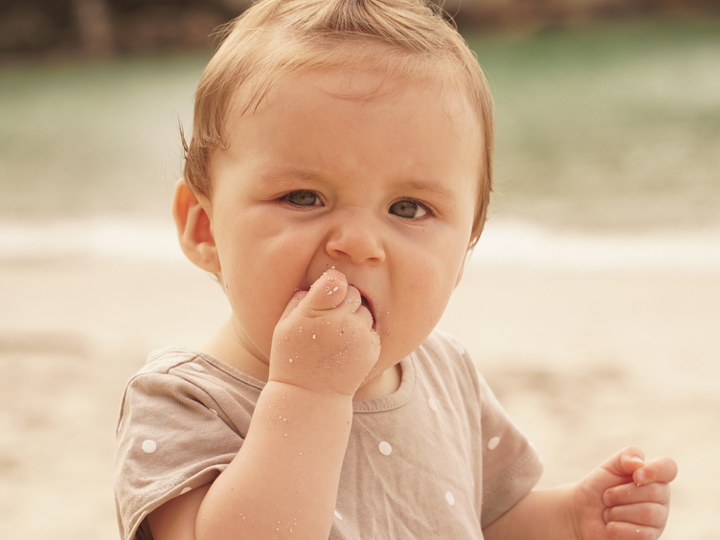A milk free diet when breastfeeding

You may have been asked to trial your baby on a strict cow's milk free diet. This is to stop any proteins from dairy products passing to your baby through breastmilk. This can help to decide if your baby's symptoms are caused by a reaction to cow's milk protein.
Explore the topics on this page:
Foods to avoid
You will need to avoid cow’s milk. This includes all food and drink made with cow’s milk. You should also avoid all mammal milks, including, goat, sheep, mare and buffalo milk. These contain similar proteins to cow's milk which your baby may also react to.
Dairy alternatives
Alternative milks based on oat, coconut, hemp and pea can be used in cooking and to drink. Choose a plant-based milk that contains added calcium. Organic milks do not contain added calcium. There are also plant-based yoghurts and cheeses available.
Soya
Some babies who react to cow’s milk protein also react to soya. When you first exclude cow’s milk from your diet, avoid major sources of soya. This includes tofu, soya mince, soya yoghurt and soya milk.
Choose plant-based alternatives that are not soya-based. It's ok to eat products such as bread and sausages that contain ‘soya lecithin’ or ‘soya flour’.
Soya can often be tried later to see if your baby reacts to it or not but it is best not to include it for the first 4 to 6 weeks.
Always check food labels
Cow’s milk is often an ingredient in pre-packaged foods and drinks. For example, bread, biscuits, baked goods, processed meat and fish, crisps, breakfast cereals, sweets and ready meals.
Under current laws, if cow’s milk (or any common allergen) is an ingredient in a pre-packaged food or drink, it must be highlighted or emphasised in bold.
Ingredients list example
Ingredients: Water, Vegetable Oils (37%) [Rapeseed Oil, Palm Oil], Olive Oil (22%), Whey Powder (from Milk), Salt (1.1%), Emulsifier (Mono- and Diglycerides of Fatty Acids), Stabiliser (Sodium Alginate), Pre-servative (Potassium Sorbate), Colour (Carotenes), Flouring, Vitamin A, Vitamin D.
There are many ways in which milk can be labelled, so carefully check the ingredients list on food items. Avoid foods which contain the following ingredients:
- butter
- buttermilk
- cheese – all varieties
- condensed milk
- cow’s milk and all animal milks
- cream
- crème fraiche
- evaporated milk
- fromage frais
- ghee
- margarine/spread
- yoghurt
- casein (curds)
- caseinate
- calcium or sodium caseinate
- hydrolysed casein
- hydrolysed whey protein
- lactoglobulin
- lactalbumin
- lactose
- milk powder or skimmed milk powder
- milk protein
- milk sugar
- milk solids or non-fat milk solids
- modified milk
- whey or whey solids
- hydrolysed whey
- whey protein
- whey syrup sweetener
Foods sold without packaging don’t need to be labelled. But you can ask someone behind the counter for allergen information to see whether these products contain milk.
Foods labelled ‘may contain milk’ will not have milk within the ingredients but may contain traces of milk due to being manufactured on the same equipment. You do not need to avoid foods that are labelled ‘may contain milk’.
Lactose-free foods and drinks still contain cow’s milk protein and are not recommended as alternatives.
Daily calcium requirements
While breastfeeding, your body needs approximately 1250mg of calcium each day. Dairy foods are a main source of calcium, but there are lots of dairy free alternatives available. Choose dairy alternatives that contain added calcium. Organic options will not contain added calcium. Read more about calcium.
If you are unable to eat and drink enough calcium-rich food and milk you can take a calcium supplement. You can buy these from the supermarket or pharmacy.
Daily vitamin requirements
If you are breastfeeding, you should consider taking a daily 10mcg vitamin D supplement.
Babies from birth to 1 year old who are being breastfed should be given a daily supplement containing 8.5 to 10mcg of vitamin D to make sure they get enough. This is whether or not you are taking a supplement containing vitamin D yourself.
If your baby is also having infant formula, they do not need additional vitamin D unless they are drinking less than 500ml (17oz) of formula daily.

